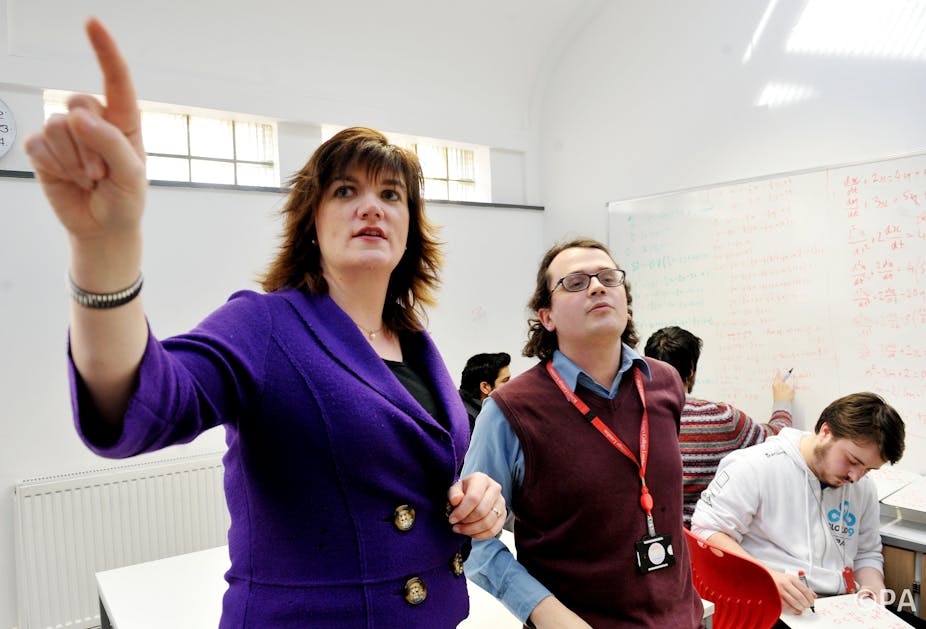Parents and teachers are still coming to terms with a series of structural reforms to education, the most radical of which – as announced by George Osborne in his budget speech – will be to transform all UK secondary schools to academies by 2022.
As the dust settles, I think that the system that eventually emerges might provide a more consistent context for addressing the inherent inequalities in English children’s attainment than the dying local authority-supervised system system it replaces.
Osborne’s announcement was swiftly followed by the first government white paper on education for six years: Educational Excellence Everywhere. Among other things, it sets out the organisational arrangements for English schools the government expects to be complete by the end of this parliament.
All this had been precipitated a few weeks earlier by a consultation document on a new national schools funding formula in which the government said: “we expect local authorities to step back from running school improvement (for any schools) from the end of the 2016/17 academic year”.
These are big changes, but they are not unexpected. In a new book, I have argued they can easily be traced back to the third education white paper of the Labour government in 2006 – and arguably even further back to a 1995 Conservative letter to local education authorities.
The push for self-improvement
These reforms are not merely a creation of the Conservative (or coalition) governments. For more than ten years, “system leaders” – accredited national, local and specialist leaders of education drawn from high-performing schools – have been steadily replacing staff formerly employed by local authorities to provide support to schools. These schools are either those identified as being in difficulty by failing to meet an ever-widening net of expectations, or those that just want to improve their offer to some or all of their children, even if already considered “good” or “better” by the schools inspectorate Ofsted.
As a consequence, many headteachers I interviewed no longer find local authority (LA) staff who understand their work and can be helpful to them – local authorities have been hollowed out. So although most headteachers bear no antagonism to their LA, many have just moved on mentally: they do not look to the local authority for anything now. A fundamental shift in attitudes has taken place.

Rapidly increasing academisation of schools since 2010 – now to be completed under this government – accelerated this shift. So did the stringent budget cuts imposed on local authorities from 2010, that are set to continue. But I also found a dramatic and irreversible decline in regard for local democracy in nearly everyone interviewed, whatever their professional role or background.
LAs have not helped themselves: moves to cabinet and now mayoral government have reduced the great public deliberative processes that were a strength of the English system for 100 years. Some council “vision” documents still show elaborate flow diagrams whereby schools implement council priorities. Even the Local Government Association has openly spoken of the crisis in democracy.
The rapid pace of academisation is not the whole story. The system emerging from the now dying local authority one is being supervised by eight Regional Schools Commissioners (RSCs), appointed in 2014.
I interviewed two of them before they took up their posts. They were hugely impressive: measured, focused practically on how schools realistically improve, and driven by a moral commitment, particularly to disadvantaged students. They are supported by Headteacher Advisory Boards – part-elected and part-appointed – all of whom have time built into their working weeks to support the commissioners.
Together, their role has been to intervene into academies and free schools in difficulty and help develop system leaders. This is now being extended to all schools, including those currently maintained by local authorities, and they will oversee the transition to a fully academised system. Currently there are eight RSCs responsible to the National Schools Commissioner (David Carter), though the government has not ruled out there being more in the future.
Signs of progress
But there is a wider story of developing school partnerships I came across in my research. In some places – often originally provided with start-up funding by their local authorities – thriving school partnerships are engaging in rich development activities, using system leaders.
One partnership in the West Midlands, for example, provides rotating half termly “learning walks” whereby senior staff can hear about a particular innovation in a school and then spend time in classrooms seeing it in action. A teaching school alliance elsewhere, which I came across in my research, has amalgamated its professional development programme with one formerly provided by the local authority and now runs it from a local university. And some of these partnerships are already becoming the first port of call for development queries from their schools.
But this is uneven. In some parts of the country, the largest number of academies are free-standing – neither being in chains nor having any established partnerships of their own – leading to uncertainty. And the variable quality of academy chains has been well-documented. Secondary schools generally do not yet have one consistent set of partnership relationships through which they can focus all their improvement work – an idea advocated by the education scholar David Hargreaves. All of this is still developing.
Democratic it ain’t though, and schools-led not yet. Nevertheless, with a focus on inequality in outcomes for children – essential in England – the system now in development could prove more reliable and consistent than the old one, though of course not yet.
And the story of local authorities’ other responsibilities towards schools is not yet finished with this white paper. I argue for new ones for some, including supporting local communities – especially in deprived areas – to articulate their own visions for their future development involving their local academies. The LA story has just reached another staging post. It’s time to move on.

